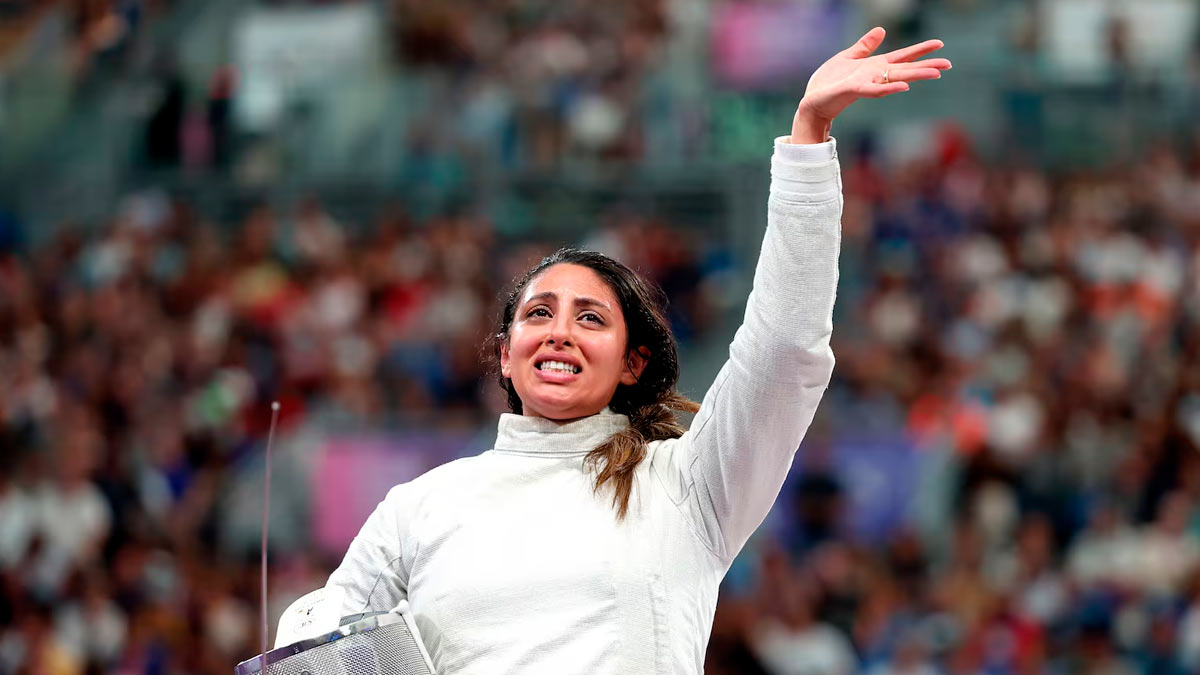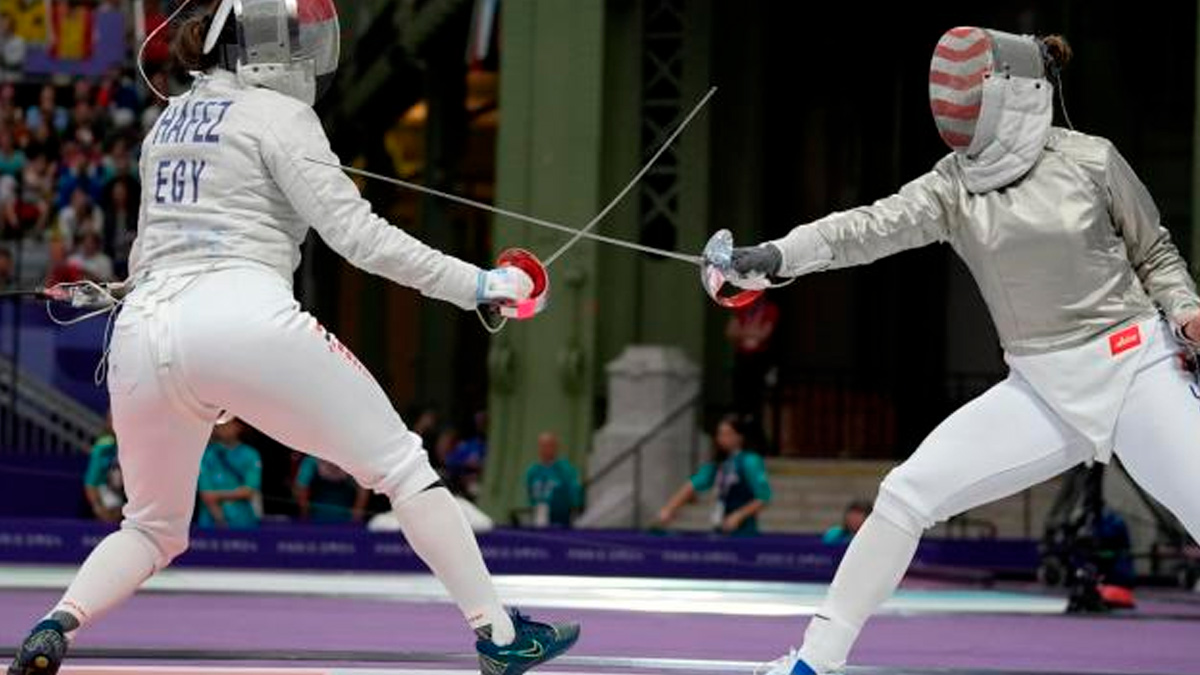
The Paris Olympics 2024 have showcased numerous athletes pushing the boundaries of performance and resilience. Among these extraordinary individuals is Egyptian fencer Nada Hafez, whose recent achievement has captured global attention. At just 26 years old, Hafez not only qualified for the round of 16 but did so while seven months pregnant, illustrating a remarkable blend of athletic prowess and personal determination.
Table of Content:-
Nada Hafez’s Historic Achievement
Nada Hafez’s presence at the Summer Olympics, with her growing baby bump, has been nothing short of inspirational. In her latest Instagram post, Hafez shared the unique experience of competing with her unborn child in tow. Her caption poignantly reflected on the extraordinary nature of her Olympic journey, stating, “What appears to you as two players on the podium, they were actually three! It was me, my competitor, & my yet-to-come to our world, little baby!”
Despite her impressive performance, Hafez’s campaign ended with a loss to South Korea's Jeon Hayoung. Nonetheless, her story underscores the incredible physical and emotional challenges she faced. As she described, balancing the demands of high-level sports with the physical and emotional aspects of pregnancy proved to be a strenuous yet rewarding endeavour. Hafez acknowledged the pivotal support of her husband and family, emphasising their role in her continued success.
View this post on Instagram
The Intersection of Pregnancy and Athletic Performance
The debate over whether pregnant athletes should continue to compete remains contentious. On one hand, exercise during pregnancy is known to offer numerous benefits, including improved cardiovascular health and mood stabilisation. On the other hand, the decision to compete in sports while pregnant is complex and highly individualised.
Historical Precedents and Guidelines
Several notable athletes have continued their careers while pregnant, setting precedents for future generations. Olympic beach volleyball gold medalist Kerri Walsh, WNBA star Candace Parker, and LPGA golfer Catriona Matthew, who won the Brazil Cup while five months pregnant, have all demonstrated that pregnancy and high-level competition can coexist.
However, guidelines and recommendations have evolved over time. Dr. Raul Artal’s 1985 guideline suggested that pregnant athletes should not exceed a heart rate of 140 beats per minute to ensure fetal safety. Although this standard was based on estimation rather than robust evidence, it has continued to influence recommendations. Current understanding emphasizes a more nuanced approach, recognizing the variability in individual health and athletic capacity.
Key Considerations for Pregnant Athletes
For athletes considering competition during pregnancy, several factors must be assessed:

Personal Health and Fitness Level
Athletes who were active prior to pregnancy may be better equipped to handle the demands of continued competition. Conversely, those who were not regularly active should avoid starting intense exercise programs during pregnancy to mitigate risks.
Sport Type and Intensity
The nature of the sport plays a critical role in determining whether it is safe to continue. Non-contact sports such as swimming and running generally pose fewer risks compared to contact sports or those involving high-impact movements. The physical demands and risk factors inherent to each sport must be carefully evaluated.
Also Read: Zika Virus Detected In Larvae Samples From Parts Of Pune As The Number Of Cases Rise
Health Monitoring
Regular medical supervision is crucial for pregnant athletes. Monitoring hydration, caloric intake, and physical responses can help manage the risks associated with high-intensity competition. Athletes should ensure that their activities do not lead to excessive fatigue or dehydration.
Competitive Level
The demands of competing at different levels (e.g., high school vs. collegiate) vary significantly. Higher levels of competition often require more rigorous training and longer practices, which may impact an athlete’s decision to continue participating.
Risk Assessment
Pregnant athletes must consider the specific risks of their sport. For instance, sports involving high-speed projectiles or significant body contact could potentially pose risks to both the athlete and the fetus.
Bottomline
Nada Hafez’s experience at the Paris Olympics 2024 highlights the profound determination and resilience required to balance elite athletic performance with the journey of pregnancy. Her story exemplifies the broader challenges faced by pregnant athletes and the complex decisions they must navigate.
As society progresses, it is essential to continue examining and supporting the participation of pregnant athletes in competitive sports. By addressing safety concerns and providing appropriate guidelines, we can ensure that both the well-being of athletes and their unborn children are prioritized, allowing more athletes like Nada Hafez to achieve their dreams while embracing motherhood.
Also watch this video
How we keep this article up to date:
We work with experts and keep a close eye on the latest in health and wellness. Whenever there is a new research or helpful information, we update our articles with accurate and useful advice.
Current Version